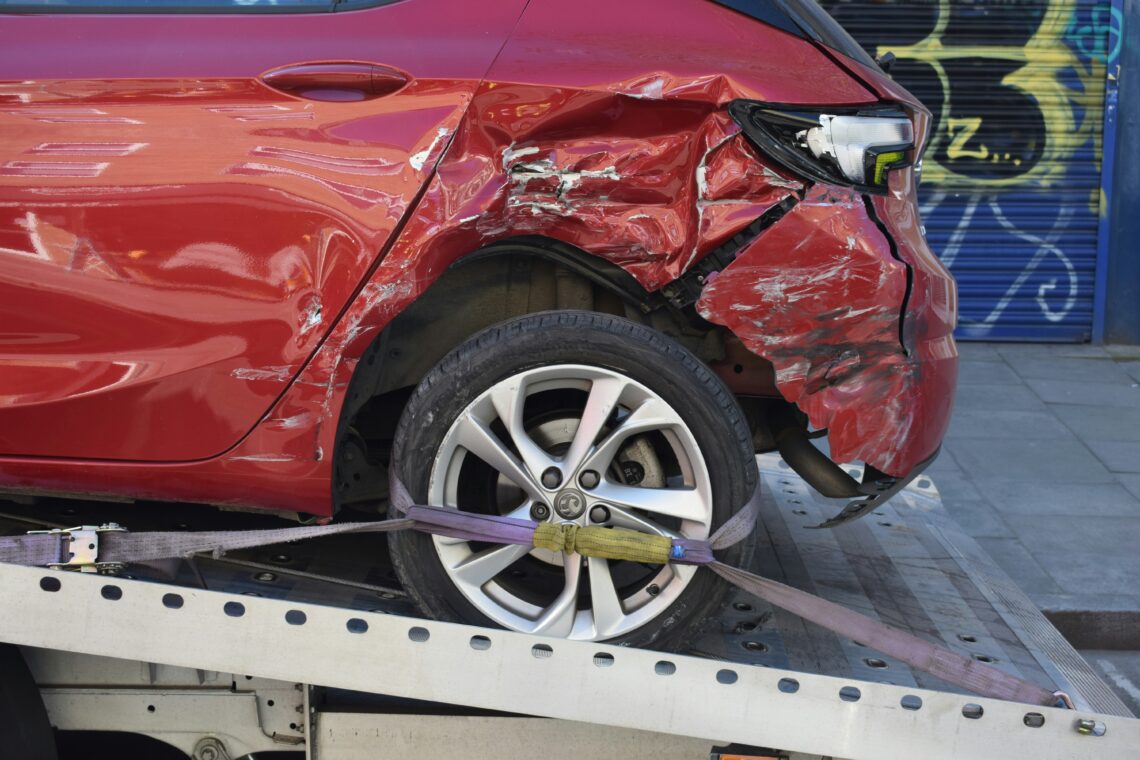Today we want to discuss life after receiving a car accident. If you spend the lump sum payment without planning ahead, you may find yourself running out of money before covering all these critical needs. Even worse, if surprise expenses show up later on, you could end up facing financial hardship.
And so, by thoughtfully managing this money, you can protect your well-being now and in the years ahead.
Step-By-Step
Here is a detailed walkthrough of what to do once that out-of-court legal settlement check arrives:
Step 1: Avoid Rushing into Decisions
When those long-awaited settlement funds hit your bank account, it’s tempting to want to celebrate or immediately spend some chunks of money. However, before making any choices about how to use the lump sum payment, pause and take a breath. Carefully allocating this influx of money requires diligent planning. Rushed decisions could negatively impact your financial stability down the road. Give yourself time and mental space to strategize.
Step 2: Understand Exactly How Much Money Goes Toward What
- This settlement money isn’t just “bonus cash” for you to freely spend as you please. The various pieces of the lump sum are earmarked to cover particular accident-related costs. Carefully review the settlement breakdown provided by your lawyer. Ask them to explain anything you find confusing.
- Typical categories found in lump settlement agreements include:
- Medical expenses reimbursements: Both past expenses and predicted future costs may be included.
- Income replacement for missed work days: Wages you lost taking necessary time off as you recovered from your injuries should get reimbursed here.
- Money set aside for pain and suffering: This portion attempts to acknowledge the physical and emotional impacts experienced due to the trauma of the motor vehicle crash.
- Additional accident-associated costs: Any other crash-related expenses that came up, whether vehicle damage, property loss, travel costs to medical appointments, and so forth.
- Having a grasp on which parts of your lump sum payment are allocated for which needs will empower you to distribute the funds wisely.
Step 3: Address Outstanding Accident-Related Debts
If you have remaining unpaid medical bills, car repair invoices, or other outstanding debts that stem directly from the vehicle accident, make paying those balances off urgently a top priority. This will prevent creditors or collectors from hassling you down the line.
For instance:
- Pay off hospital and healthcare provider invoices in full.
- Settle accounts with the auto body shop if repairs are still owed.
- Pay back any short-term personal loans that you relied on to stay financially afloat after the crash.
- Checking these debts off your list right off the bat alleviates financial stress by giving you a fresh start.
Step 4: Set Aside Funds for Taxes (If Required)
In most situations, monetary compensation from injury claims is not considered taxable income. However, there are a few exceptions to note:
If part of your lump sum settlement includes lost income replacement, the Internal Revenue Service (IRS) may categorize that portion as taxable earnings. Any investment income earned from interest made on the settlement money gets taxed.
Consult your lawyer or a tax professional to fully grasp what amount, if any, of your lump sum payment requires paying taxes on. Proactively setting aside money needed for taxes prevents shocking tax bills down the road.
Step 5: Construct a Budget
Once you’ve paid urgent debts and addressed potential tax responsibilities, it’s time to map out a budget. A budget allows you to strategically direct funds towards needs, both in the near future and coming years.
Carefully consider factors like:
- Future healthcare costs: Might you require physical therapy, mental health services, follow-up doctor visits, or additional medical procedures to fully recover? Saving for surprising medical expenses brings peace of mind.
- Daily living expenses: How long will you rely on the settlement money to cover bills, rent/mortgage, groceries, and other routine costs of living? Don’t let these ongoing expenses catch you off guard.
- Savings and investments: Can you set aside settlement funds for building emergency savings, retirement investing, or other financial growth planning? Having savings and diverse income streams makes you more financially resilient to life’s surprises.
A savvy lawyer has financial contacts that can refer you to advisors who specialize in working with car crash victims’ unique monetary situations. Their guidance when budgeting empowers good choices.
Step 6: Start an Emergency Cash Fund
No matter how diligently you plan, unexpected curveballs still arise in life. From sudden car trouble to urgent medical issues to job loss, surprises sometimes hit at the worst moments. By proactively setting up an emergency cash fund, you can dip into savings rather than resorting to credit cards or loans when surprise expenses blindside you.
Financial experts strongly encourage everyone, especially those recovering from traumatic injuries, to have quick access to emergency money that could cover at minimum 3-6 months’ worth of living expenses. Estimate costs like rent, healthcare, groceries, transportation, utilities, and other regular bills. Place this emergency money in an easily accessible yet interest-earning high-yield savings account. Give yourself the gift of financial security.
Step 7: Consider Conservative Investing
If you received a particularly large injury settlement, investing a portion of the money may help grow your lump sum. Traditional investment vehicles to consider include:
- High-interest savings accounts: A relatively low-risk approach, high-yield savings provide stability while steadily building interest income. These work well for short-to-medium-term savings goals.
- Mutual funds: Professionally managed collections of various market securities chosen to deliver reliable long-term returns, mutual funds diversify and spread out risk.
- Retirement accounts: Lacking retirement savings makes life enormously harder later on. Settling funds can help secure your future by opening/contributing to IRA, Roth IRAs or workplace retirement plans.
Because not everyone has investment experience, working alongside a financial advisor often brings the best outcomes. Your lawyer may connect you with trustworthy financial experts well-versed specifically in helping past accident victims optimize and grow their settlement funds.
Step 8: Resist Impulsive Splurging
After enduring physical injuries, financial uncertainty, and extreme stress throughout the claims process, it’s tempting to want to celebrate by spending your settlement check. However big-ticket impulse purchases like lavish vacations, luxury vehicles, down payments on a home remodel, or other extravagances can quickly drain settlement funds.
While moderately treating yourself can lift your spirits, stick to small, reasonable splurges that fit your budget. The settlement money wasn’t awarded so you could buy expensive toys. Approach the funds through the lens of pragmatism – settle for stability over superficiality.
Step 9: Financially Plan for Possible Long-Term Care Needs
If your crash injuries cause impairments needing ongoing medical care, sufficiently earmarking funds to cover future associated costs is imperative before spending settlement money elsewhere.
Check in with your healthcare providers and lawyer to realistically estimate potential lifelong treatment expenses. Extended rehabilitation, adaptive equipment, accessibility modifications, and related transportation needs should be factored into your master budget.
Carefully plotting out your lifelong accident-related costs ensures your lump sum settlement stretches far enough without leaving you stranded. Don’t let the money disappear only to later have enormous uncovered medical bills pile up again. Think long-term.

Photo by on Pexels
How Lawyers Can Help Post-Settlement
You might assume that once you’ve signed the settlement paperwork and the money arrives in your bank account that your relationship with your lawyer concludes.
However, even after resolving your injury claim case, having your lawyer’s continued guidance can greatly ease the financial transition process.
Here are 3 key ways lawyers add value even after securing you compensation:
1. Demystify Complex Settlement Terms
Injury claim settlement agreements sometimes contain confusing legal terminology or strict rules regarding how you’re allowed to use the funds.
For example, after litigation in Texas, you may reach a settlement. This settlement agreement may bar you from publicly discussing your settlement amount or require you to spend compensation only toward pre-approved categories like healthcare and income replacement.
In such a case, your Houston car accident lawyer will explain these nuances to prevent accidental violations down the road. Complying with any terms tied to your settlement money is critical for avoiding potential legal headaches.
2. Offer Tax Guidance
As noted earlier, most car crash settlement money gets considered non-taxable by the IRS. However, portions reimbursing lost income or investment interest earnings do require paying taxes on.
Beyond informing you if any sections of your settlement require budgeting for future tax payments, your lawyer can also provide referrals to reputable tax professionals. Their expertise will prove invaluable during tax season.
3. Supply Financial Advisor Referrals
Personal injury lawyers often collaborate closely with financial professionals who specialize in working alongside car crash victims needing to optimize lump-sum settlements.
Read more lifestyle articles at ClichéMag.com
Images provided by Deposit Photos, BingAI, Adobe Stock, Unsplash, Pexels, Pixabay & Creative Commons




